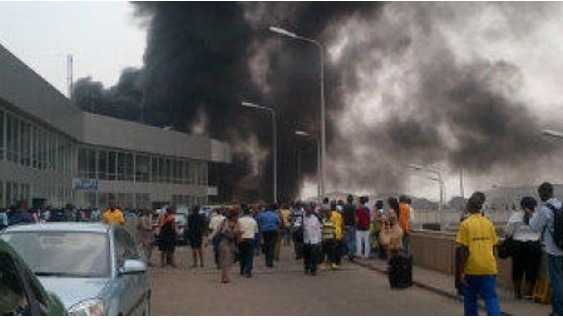Stakeholders Call for Collaboration to Strengthen Nigeria’s Jet Fuel Supply Chain

Nigeria’s aviation sector is facing an alarming imbalance in its aviation fuel value chain, with experts warning that the proliferation of weak fuel marketers and unregulated transactions could lead to a full-blown black market crisis.
Despite the commencement of local jet fuel production by Dangote Petroleum Refinery – hailed as a major milestone for energy security – industry leaders lament that, although supply of the commodity is now stable, pricing remains high, and coordination among stakeholders poor.
According to data from the Nigerian Midstream and Downstream Petroleum Regulatory Authority (NMDPRA), jet fuel – known as Jet A-1 – accounts for roughly 30 – 40 percent of airline operating costs in Nigeria. Since early 2024, the price per litre has hovered between N1,200 and N1,400, even after Dangote Refinery began local supply.
This sustained high cost has forced airlines to cut schedules, or raise fares to cushion cost of operation. Analysts warn that unless the aviation fuel value chain is restructured through collaboration, financial oversight, and infrastructure restoration, the country’s aviation industry could face severe operational instability.
At a Colloquium organised by CITA Energies Limited in Lagos, industry experts – including Mr Chris Ndulue, CEO of Ndano Energy and former Managing Director of Arik Air – raised deep concerns about the fragmented state of the sector.
Ndulue described the existence of “36 aviation fuel marketers and just eight operating airlines” as “an anomaly” that threatens the financial viability of fuel distributors and, by extension, the safety and stability of flight operations.
“What we have today is a market structure that is unsustainable,” Ndulue said. “With 36 marketers serving only eight airlines, most of these marketers are underfed and financially weak. They lack the capacity to maintain secure and reliable fuel supplies.”
Ndulue called on the Nigerian Civil Aviation Authority (NCAA) to evaluate the financial health of fuel marketers, just as it monitors airlines’ solvency and operational capacity. “If your financial health is not good,” he stressed, “you cannot source quality products. For instance, you cannot approach Dangote to lift aviation fuel unless you meet the minimum order quantity of about N1.5 billion.”
He warned that the absence of strong, well-capitalised marketers is already breeding a dangerous parallel market. “We are seeing the emergence of a black market,” he disclosed. “Some players now buy aviation fuel in jerry cans – products of dubious origin, sometimes stolen. Once that black market expands, we risk a serious safety crisis. This is something that the Federal Airports Authority of Nigeria (FAAN) must urgently address.”
Despite these concerns, Ndulue noted a positive shift in regulatory monitoring due to local refining. “Today, about 90 percent of aviation fuel comes from Dangote Refinery,” he explained. “That makes traceability and quality control easier for both NMDPRA and NCAA. The challenge now is to ensure that all operators are certified and adhere to regulatory standards.”
Also speaking at the event, Dr Richard Aisuebeogun, former Managing Director of FAAN, underscored the need for stronger regulatory enforcement and patronage of locally refined products.
He praised the government for enabling Dangote Petroleum Refinery’s operations but urged mandatory local sourcing of jet fuel to strengthen national capacity.
“Government has shown commitment by supporting local refining,” Aisuebeogun said. “All airlines must recognise and patronise Dangote Refinery. Even though the sector is deregulated, it is important that we encourage domestic production to guarantee sustainability.”
He emphasised that Part 18 of the NCAA Regulations provides a framework for standardised storage and certification of fuel operators, requiring every licensed depot to maintain a minimum of seven days’ storage capacity. “NCAA must ensure only certified operators handle aviation fuel and go beyond depot certification to individual licensing of handlers,” he added.
Aisuebeogun also called for institutionalised collaboration among government agencies, airlines, and fuel marketers to enhance pricing transparency and safety assurance. “Regular consultative meetings between the public and private sectors are essential,” he said. “Without structured dialogue, we cannot identify or solve the sector’s challenges effectively.”
On the infrastructure front, Dr Thomas Ogungbangbe, Managing Director of CITA Energies Limited, renewed the call for the rehabilitation of the 98-kilometre Atlas Cove–Mosimi–Ejigbo–Murtala Muhammed Airport pipeline, which has been out of use since 1998. The restoration, he said, would eliminate over 100 fuel tankers from Lagos roads daily and reduce the cost of aviation fuel by as much as N30 – N40 per litre.
“That pipeline is still viable,” Ogungbangbe asserted. “If pressure testing and pegging are done, we can revive it through a public–private partnership. This would drastically cut logistics costs, reduce road congestion, and restore efficiency to the fuel distribution network.”
Ogungbangbe further disclosed that while Dangote Refinery has improved supply reliability, its pricing structure still mirrors imported rates. “In terms of availability, Dangote has been a blessing,” he noted. “But pricing remains almost the same as imported fuel. Some marketers even find it cheaper to import, which shows that local pricing mechanisms need review.”
He estimated that importing jet fuel currently costs marketers around $500,000 per vessel, with additional logistics costs translating to about N15 per litre before delivery to aircraft. “If we optimise local infrastructure, we can reduce these costs significantly,” he said.
As the aviation industry continues to navigate economic turbulence and operational uncertainty, experts agree that collaboration, regulation, and infrastructure revitalisation are key to ensuring sustainability.
With aviation fuel prices exerting relentless pressure on airlines and passengers alike, the fate of Nigeria’s airlines and travellers may depend on how swiftly stakeholders unite to fix the cracks in the nation’s jet fuel supply chain.







